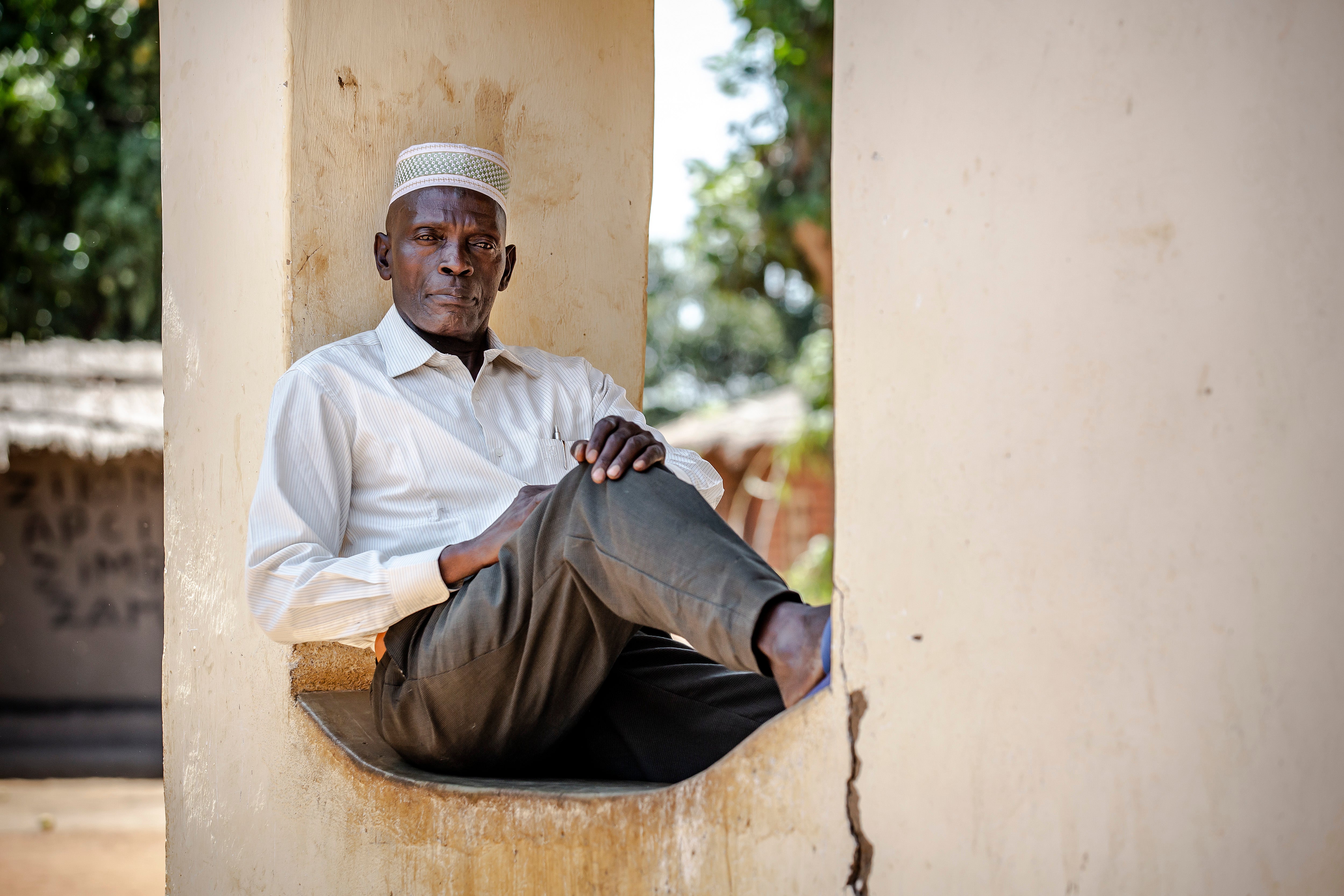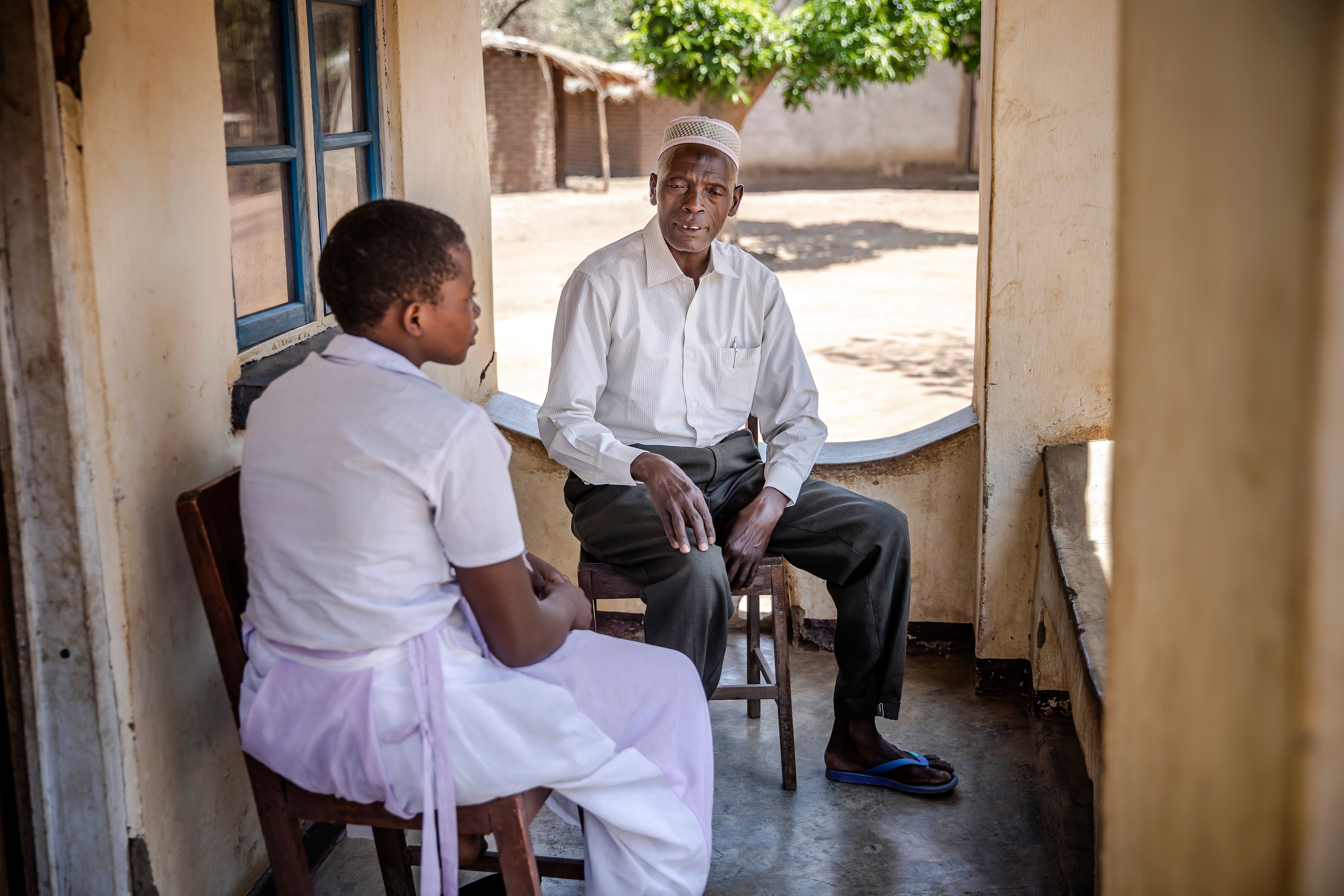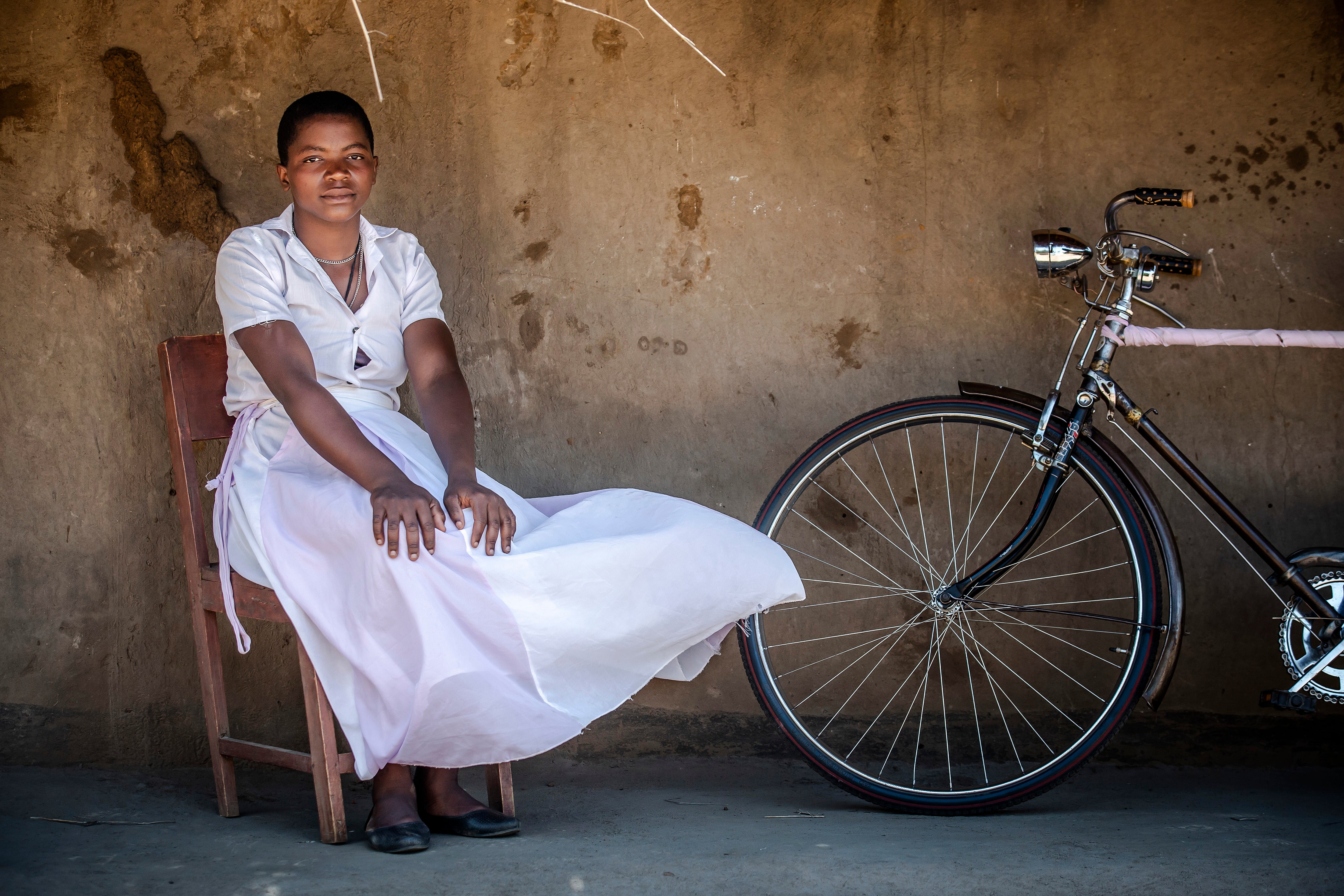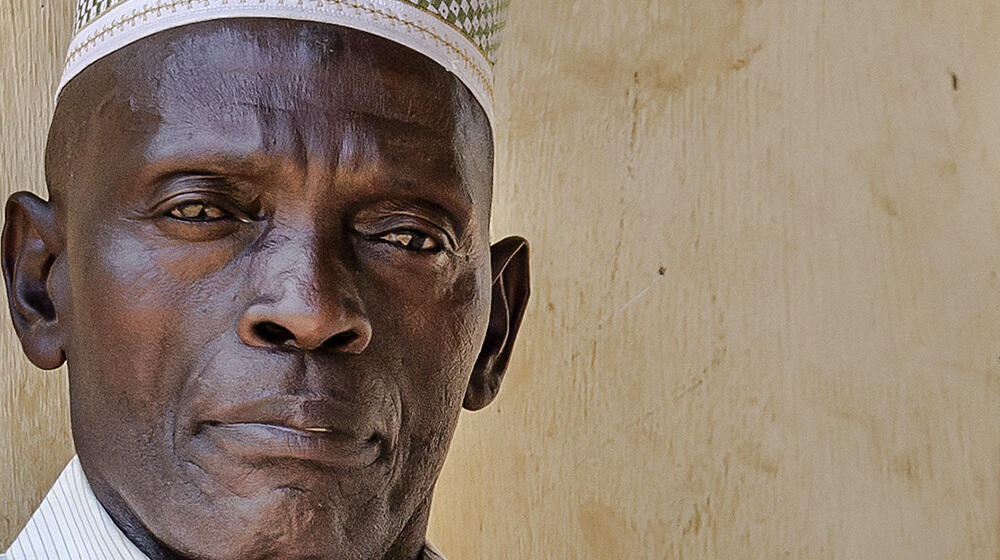Sitting under a large, leafy mango tree, village headman Patete marvels at a group of young girls singing as they walk to a nearby primary school. In the past, a scene like this was not common in the village. Many girls stayed at home, while boys went to school. As the group village headman he plays a crucial role in the community.

“It’s been an uphill task,” says the headman who is from the district of Machinga. “I had to go against some deeply held traditions to persuade my people to see girls needed access to education just like boys.”
Championing girl child education
The headman has long campaigned in the community to recognize the importance of equality between girls and boys.
To support the headman in his quest to support girls in education he attended a training session as part of the Spotlight Initiative funded by the European Union. As a pillar of his community his opinion is important in changing the way men and boys think about the role of girls and women in their communities.
The training focused on ending sexual and gender-based violence and increasing awareness of human rights highlighting the rights of women and how these were diminished. “As a community, we take for granted so many things,” recalls Patete. “For instance, the workload we put on women in the home and on our farms.”
Fighting culture to keep girls in school
“In our culture, even if we are coming from the field, the woman carries all of the farming equipment while the men stride home with hands in their pockets. In the home, the wife has to cook again, while the husband is resting.” He continues. “This training has given me a much broader outlook on these challenges.”

“It is something that in the past was somehow socialized in us that women should do more work. The training has reinforced in me my view that we are abusing women.”
The training sessions have reinvigorated Patete and his championing of rights. He has approached fellow community leaders in their forums and highlighted the plight of women and girls and the responsibility of the leaders to change the way communities perceive the role of girls and women to encourage actions against any harmful practices.
“It’s not easy changing the old ways of doing things, but we are making progress,” he says. Combatting underage and early marriage is a case in point.
“There is no small crime,” he says. “All those who are found marrying off young girls are committing a crime. This is my stance and everyone in my area knows about this.”
Recently, Group Village Head Patete annulled an underage marriage where a 17-year-old girl was forced to marry her 20-year-old boyfriend. The issue came to his attention and he annulled the marriage.
“Many people think that if they marry off their daughter, after becoming pregnant, it’s a befitting punishment,” he says. “To the contrary, that’s a big mistake. What the girls’ need is a second chance.”
Embracing the change
The girl, Stella John, who is now 20- is back in school and in form three. She is also a member of a Spotlight safe space in her village.

“If it wasn’t for the chief’s intervention, I could have been a house wife now,” says Stella.
In Stella’s culture, girls who have gone through the initiation rites are considered ready for marriage. And her being known for turning a marriage proposal down has not befriended her to the proponents of the tradition.
However, the safe space has been her place of refuge. It has helped her live through the criticism to concentrate on her goals.
“It’s not easy to be known for being someone who turned down marriage for school,” she says. That’s what is driving me hard to fulfil my dream of becoming a doctor.”
By Joseph Scott, Communications Analyst


